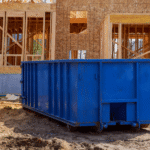Nasal problems often start small—a bit of congestion, a lingering runny nose, or occasional pressure around the eyes. Many people ignore them, assuming it’s just allergies or a passing cold. But when these issues stick around, they can signal deeper problems that affect your breathing, sleep, and overall health. Left untreated, they can lead to recurring infections, structural damage, and even complications beyond the nose.
A nose specialist, also called an ENT (ear, nose, and throat doctor), is trained to identify the exact cause of these problems and create a treatment plan that works. By acting early, you can avoid years of discomfort and protect your long-term health.
When You Should See a Nose Specialist
Warning Signs That Deserve Expert Attention
Certain symptoms should not be brushed off. You should book an appointment with a nose specialist if you experience:
- Nasal congestion lasting more than 10–14 days
- Frequent sinus infections (three or more in a year)
- Difficulty breathing through one or both nostrils
- Chronic snoring or sleep disruptions due to blocked airways
- Recurring nosebleeds without a clear cause
- Loss or reduction of your sense of smell
- Persistent facial pain or pressure
These can be signs of issues like a deviated septum, chronic sinusitis, nasal polyps, or allergic rhinitis.
The Cost of Waiting Too Long
Ignoring symptoms can make them worse. For example, untreated sinus infections can spread to nearby structures, and constant nasal obstruction can strain your respiratory system, leading to fatigue and even cardiovascular stress. What starts as a simple blockage could turn into a long-term breathing disorder.
Diagnosing Nasal and Sinus Conditions
Why Professional Tools Matter
Nose specialists have access to advanced diagnostic tools that a regular clinic visit can’t match. These include:
- Nasal endoscopy – A thin, flexible tube with a camera that provides a detailed view inside the nasal passages and sinuses.
- CT scans – Used to see the full structure of your sinuses and detect hidden infections or blockages.
- Allergy testing – Helps determine whether your symptoms are caused by environmental or seasonal triggers.
By using these tools, a nose specialist can pinpoint the root cause and tailor treatment for lasting relief.
Dangers of Guesswork
Self-diagnosing can lead you down the wrong path. Facial pressure might be mistaken for a sinus infection when it’s actually a migraine, or constant congestion could be caused by structural issues instead of allergies. Treating the wrong problem wastes time, money, and allows the real condition to worsen.
Treatment Options That Work
Non-Surgical Relief
Not all nasal issues require surgery. A nose specialist may recommend:
- Prescription nasal sprays to reduce inflammation
- Saline rinses to clear allergens and mucus
- Oral or injected medications for severe allergies
- Immunotherapy (allergy shots or drops) to build long-term resistance
- Lifestyle changes, such as using air purifiers or avoiding specific triggers
These methods aim to restore airflow, reduce swelling, and prevent recurrent symptoms.
When Surgery Is the Right Call
If non-surgical treatments don’t work, surgical options can provide permanent relief. Common procedures include:
- Septoplasty – Corrects a deviated septum to improve breathing
- Endoscopic sinus surgery – Removes blockages, polyps, or infected tissue
- Turbinate reduction – Reduces swollen nasal tissues that block airflow
These surgeries are often minimally invasive, meaning shorter recovery times and less discomfort.
Healing and Staying Healthy
Post-Treatment Care for Lasting Results
After treatment, your nose specialist will give you recovery guidelines, such as:
- Using saline sprays to keep nasal passages moist
- Avoiding smoking, dust, and strong fragrances
- Sleeping with your head slightly elevated to reduce swelling
- Attending follow-up visits to track healing progress
Proper aftercare helps ensure symptoms don’t return.
Habits That Work Against Recovery
Skipping check-ups, stopping medication too early, or exposing yourself to known allergens can undo your progress. Even small lapses in care can allow symptoms to creep back.
Why Ignoring Nasal Problems Is Risky
Impact Beyond the Nose
Chronic nasal issues can affect your whole body. Poor airflow can reduce oxygen intake, leading to headaches, fatigue, and reduced concentration. Repeated infections can affect your ears and throat, spreading discomfort beyond the sinuses.
Quality of Life Matters Too
Breathing easily impacts how you sleep, exercise, and interact with others. People with ongoing nasal problems often feel drained, avoid social activities, and struggle to maintain productivity. Fixing the root cause can restore both physical comfort and emotional well-being.
Conclusion
Small nasal problems can quickly become big health concerns if left unchecked. A nose specialist can identify the cause, provide targeted treatment, and guide you through recovery so you can breathe, sleep, and live better. Whether you’ve been dealing with congestion for weeks or years, seeking help now can save you from future complications. Don’t wait until your quality of life suffers—address the problem today, and breathe easy again.

















